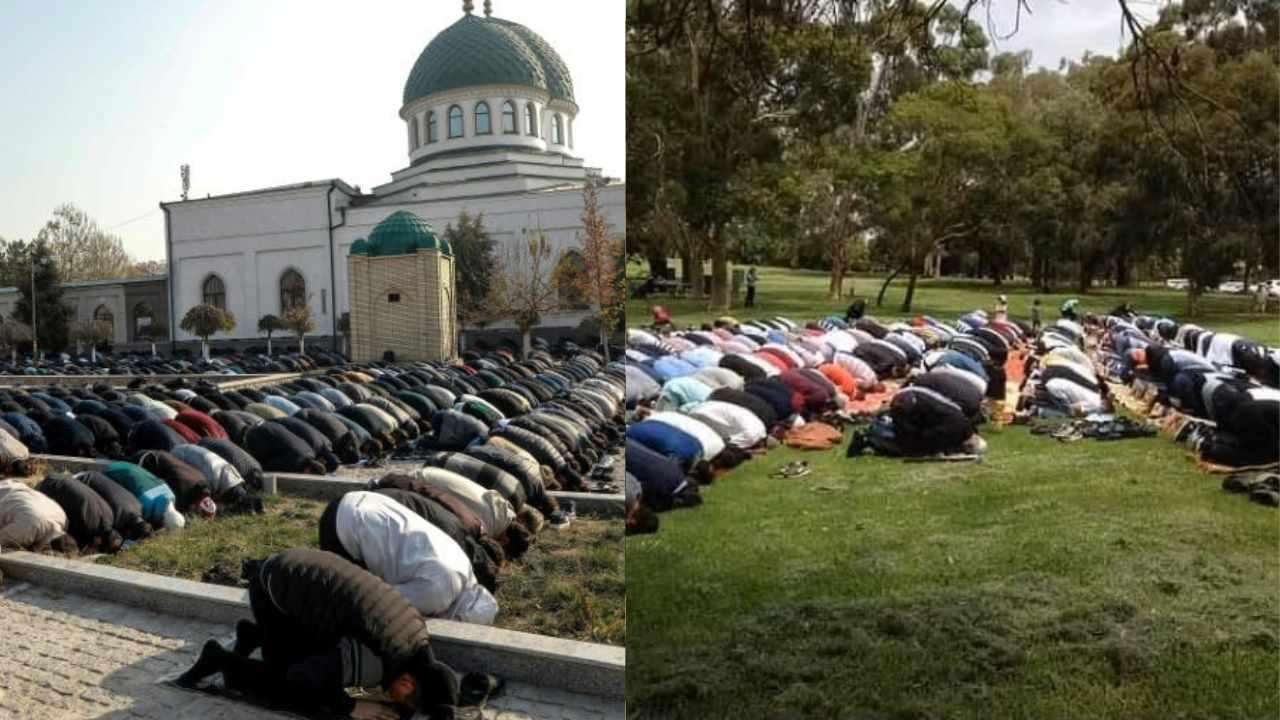In a profound display of spiritual unity born of environmental desperation, thousands of worshippers across Uzbekistan turned their faces toward the heavens this Friday, seeking divine intervention for a land parched by historic aridity. The coordinated mass prayers, held in over 2,000 mosques nationwide, mark a significant cultural moment for the Central Asian nation of 35 million, which is currently grappling with a climate emergency that has rendered traditional water management strategies insufficient.
While the sight of thousands gathering to chant the Salat al-Istisqa—the Islamic prayer for rain—is a rare occurrence in modern Uzbek history, the ritual places the country within a wider fraternity of nations currently battling extreme weather patterns through faith. This ancient tradition is frequently observed in Bangladesh, where scorching heatwaves often drive thousands to open fields in Dhaka and rural districts to seek relief from the monsoon’s delay. Similarly, the practice is a staple of spiritual life in Saudi Arabia, where the Monarch frequently calls for national prayers during dry spells, as well as in Pakistan, Afghanistan, Morocco, and Indonesia, where communities regularly mobilize when water tables plummet.
For the people of Uzbekistan, however, the necessity of such measures highlights a terrifying new reality. Friday’s sermons were not merely ritualistic but born of an urgent directive from religious leaders responding to a meteorological crisis without precedent in living memory. The Uzbekistan Meteorological Agency has classified this year’s drought in Tashkent as the most severe in 170 years, a statistic that has sent shockwaves through the agricultural sector.
The scenes in Tashkent were somber. Sixty-three-year-old Abdurashid Rasulov, standing among the rows of worshippers, noted the unprecedented nature of the gathering. He remarked that they had never participated in such prayers before, but the delay in seasonal rains left them with no choice but to follow the instructions of the imams to petition Allah for relief. Beside him, 67-year-old Anvar Abduazizov echoed the sentiment, stating that the community was united in asking for a blessing for their land and for the rain to pour down abundantly to save their harvest.
The urgency of these prayers is underpinned by alarming scientific data. According to a recent United Nations report, temperatures in landlocked Uzbekistan have risen at nearly three times the global average over the past six decades. This accelerated warming is decimating the region's primary water reserve: the glaciers. Scientists warn that these vital ice sheets, which feed the rivers sustaining approximately 80 million people across the five former Soviet republics of Central Asia, could vanish entirely by the end of the century.
The environmental crisis is compounded by man-made factors that have turned Uzbekistan into a hotspot for pollution. The widespread use of coal for heating, coupled with poor-quality gasoline and increasing desertification, has led to toxic levels of dust and smog. While authorities have attempted to utilize modern rain-making technology to induce precipitation, the methods remain prohibitively expensive and have yet to be implemented on a scale wide enough to counteract the shifting climate.
As the faithful in Tashkent disperse, their plight serves as a microcosm of a broader crisis affecting the Muslim world and the Global South. From the rice paddies of Bangladesh to the steppes of Central Asia, the increasing frequency of the Salat al-Istisqa is a somber indicator that for many developing nations, the battle against climate change has moved beyond policy and infrastructure, becoming a plea for survival itself.








.svg)


